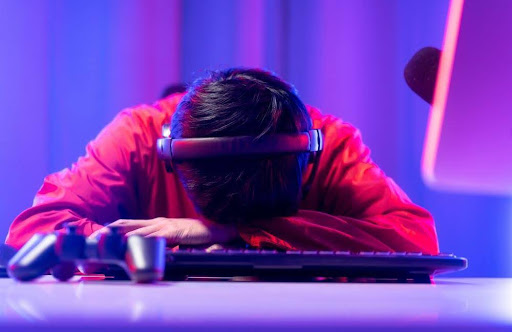
The ‘toxic gamer’ image has run around the internet, giving outsiders a crude picture of what gamers are like. Does this image accurately represent the average fan or is it a biased caricature of cherry-picked aspects? There are a lot of factors to help conclude, and here is everything you need to know about it:
What is a toxic gamer, and where do you find them?
A toxic gamer is someone who plays video games and is known for displaying unwanted behaviour, such as being generally a nuisance or being outright harmful. Where one draws the line between distinctions depends on subjectivity but all fall under the umbrella term of ‘toxic behaviour’.
What are viewed as toxic behaviours in gaming?
The gaming community has more specific names for toxic behaviours. They have no legal definition, so they’re not present in many cases like Bitcasino esports betting. However, the gaming community more or less agree on what each of them means. Here are some examples and what they look like in practice:
Verbal harassment
This is most common in public lobbies (pubs) where the gamers berate other players, friends or foes. It is rather rare, but it still sometimes happens in esports. Verbal harassment is strictly punishable in highly competitive environments, and some words uttered can lead to a pro player’s suspension or firing.
Griefing
Griefing happens when the player takes deliberate actions to harm other people, either by attacking them directly or by interrupting their attempt to have fun. They could also be actively bullying someone else, ruining the experience of another player out of spite. This is a violation of many community guidelines, resulting in an overall bad time for the recipient.
Trolling
It can be mistaken for griefing, but trolling is a lot less malicious because it’s simply being unproductive with one’s time and resources. A troll can be harmless in a casual game, but a team needs everyone to focus in a competitive scenario. Therefore, trolling can be seen as toxic behaviour from the player’s teammates’ point of view.
What are the factors that result in toxicity in gaming?
Many veteran gamers can easily blame a video game or platform for toxicity. Some of the most popular targets of these allegations are League of Legends (LoL), Dota 2, Counter-Strike 2 (CS2), and VALORANT. Communities of these video games are even self-aware, saying it’s the norm because of the games’ competitive nature.
There is no clear answer as to what causes toxicity in a gaming space. The following are some of the most popular theorised reasons:
Perceived superiority in playstyle or decisions
Many video games pander to the competitive spirit of an individual. It’s evident in player-versus-player (PVP) scenarios because pride is on the line, and some people can’t accept being defeated. In team-versus-team scenarios, players are quick to blame their teammates for missing an objective or playing sub-optimally, resulting in their team losing.
Even non-competitive games are not free from toxicity. People would sometimes share their playstyle online, hoping to connect with other players in games like Stardew Valley. However, this could draw the attention of bullies online. It can start discussions of how some decisions are mistakes and why another option is objectively superior.
Arguing of interpretation to an abstract medium
Some games are valued for their narrative rather than gameplay. Great examples of this are the Fallout and Dark Souls franchises. Games under each title are riddled with philosophical thoughts, and a variety of people extrapolate different interpretations of scenes and decisions. To this day, people still argue if Caesar was right or wrong in New Vegas.
While exchanging views over a shared medium is a civil discussion among book clubs, it tends to be a heated debate online among gamers. Each side insists on an analogy to give meaning to a game’s sets of events, while others argue that it’s just a game and should leave politics out of it. Even creators are told to keep their opinions to themselves when they share their intentions.
Are there ways to avoid toxicity in gaming spaces online?
Yes, there are ways to avoid toxicity in gaming spaces. More often than not, getting involved is a choice, not a natural flow that one has no choice but to endure. Here are three tips to avoid toxicity or, at the very least, minimise your exposure to them:
Avoid interacting in open spaces
There is an unspoken rule on the internet: if you engage, then you are opening yourself to be a target. Thus, it’s important to know that you can enjoy online content but keep your distance from the denizens of the platform.
For example, you can look up guides, reviews, and builds online. However, you don’t need to leave a comment or suggestion lest you want others to respond to your entry. It’s understandable that you only wish to add your input or seek validation, but strangers are fickle.
Only share your thoughts if you’re ready to receive feedback, for better or worse. Otherwise, abstain from online discussions on any video game, especially competitive ones.
Join heavily moderated social media spaces
If you wish to engage with the community, then there’s good news! There are spaces online that are heavily moderated to discourage toxic behaviours. How it works is that a group of people are in charge of filtering comments and posts that are considered inappropriate for the space or are in violation of community guidelines.
However, these are not perfect, and some spaces are still considered notorious for their biased mods. The best places to find such spaces are on Reddit or spaces like Steam (for PC), Xbox, PlayStation, and Nintendo community boards.
Focus on the topic in a thread
When you’re interacting online, it’s important to remember that every discussion is separated by threads. You should only focus your comment on the subject at hand because moderators frown upon comments that detract from the main topic.
For example, if people are commenting on a recent esport event, then you should only talk about its players and the action. Bringing up your own experience or asking for advice on how to play are not within that topic’s coverage. These discussions are best held elsewhere, on a thread dedicated to them.
Is toxicity in gaming normal, or can it be better?
Unfortunately, toxicity is considered the norm in the gaming space. Most people in gaming communities agree that if you want to engage with people online, you have to be prepared for backlash. However, it can be better, and there are groups of individuals working towards a welcoming environment. It takes a collaborative effort, but it can be done.
If you don’t want to be exposed to toxicity, then the best way to do so is to just avoid interacting with people online. Play any game the way you want with no strangers telling you you’re wrong. There are plenty of platforms out there that make this an enjoyable experience, like the Nintendo Switch, Bitcasino app, and PC with tons of single-player titles.
Stay in touch to get more updates & news on Buzz Feed!




